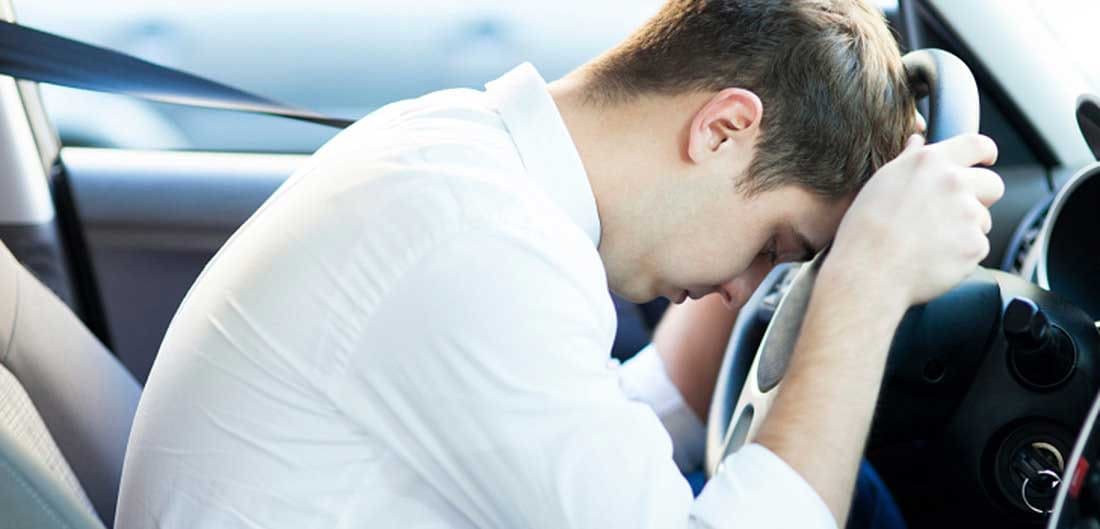
It’s a beautiful day outside. The sun is shining and the weather is perfect. You slide into your car, ready to start your busy day, when—uh oh!— your car won’t start.
There are many reasons why your car won’t turn over. Before calling for help, there are things you can check yourself. For starters, make sure the steering wheel isn’t locked. If it is, you can fix this common issue by simply moving the steering wheel from side to side while turning the key in the ignition. This verifies the steering wheel lock isn’t blocking the ignition from turning fully to the start position.
An empty gas tank is another simple reason why your car will crank but won’t start. If you were low on fuel before (or your gauge is broken), it’s possible you’re just on “E” and have run out of gas.
CAR STILL WON’T START?
If your car won’t start even after you’ve checked the steering wheel and made sure you have gas, it could be due to one of the following common culprits:
When You Turn the Key and the Engine Doesn’t Crank
- Dead car battery: A dead battery is the most common reason why a car won’t start. If you have a battery tester, check your battery to see if it’s weak. If you don’t have one, try to jump start your car with jumper cables. After a jump start, let the car run for a few minutes to give the alternator time to recharge the battery.
- Battery corrosion: Corrosion on your battery can also spell trouble, and it could prevent your car from starting, even with a jump start. Check and wipe down your battery posts to make sure there is a clean, complete connection, then try to start the engine again. An auto store employee can direct you to the right products and offer advice on how to clean your battery.
When the Car Won’t Start, Just Clicks
- Bad starter motor: If you hear a single click when you turn the key, but the engine won’t start, that could mean there’s a problem with the electrical system. The starter motor is responsible for physically turning the engine over and getting the engine to fire. If this is the issue, you’ll need a new one installed. (Keep in mind that starters typically need to be replaced every 30,000 to 200,000 miles.)
When the Car Cranks But Won’t Start
- Clogged fuel filter: The fuel filter keeps debris from getting into your car’s fuel system. When this filter is clogged, it can prevent enough fuel from reaching the engine. A replacement is usually needed if this is the problem. And to keep your fuel filter from clogging in the future, try to change it every two years or 30,000 miles (whichever comes first).
- Failed fuel pump: This could be a simple as a relay or fuse which you should check first based on your owner’s manual. It could also be due to a failed or damaged pump. This will need to be fixed by a professional.
- Bad timing belt: The timing belt ensures the engine’s valves open and close at the proper interval so that the valves and the pistons never touch. The timing belt is the most important maintenance item in your engine. A failed timing belt can cause catastrophic engine damage requiring an engine replacement. Auto manufacturers specify when a timing belt should be changed. This is usually based on mileage; generally, the interval is every 60,000 miles or five years (whichever comes first).
When the Car Engine Won’t Turn Over But Lights Work
- Bad ignition coil: When your dome light turns on but the engine doesn’t start, that means your battery is working but your ignition may be at fault. The ignition coil transforms a battery’s voltage into an electric spark. A damaged ignition coil means there’s not enough juice to do that. You’ll need a multimeter (a tool designed to measure electrical current, voltage and resistance) to test the strength of the current running through the coil.
If you’ve run into a problem you can’t fix yourself (or if you don’t feel comfortable diving under the hood), get in touch with a trustworthy auto mechanic to diagnose and repair the issue.
If your car won’t start, Roadside Service coverage* can help. Roadside Service coverage from Erie Insurance pays for reasonable auto towing and required labor costs at the site of the breakdown to get you back on the road.** To learn more about this coverage, contact us today.
*Roadside Service coverage is only available when comprehensive coverage has been purchased on the vehicle.
**Restrictions apply in North Carolina.

A better insurance experience starts with ERIE.
Haven’t heard of us? Erie Insurance started with humble beginnings in 1925 with a mission to emphasize customer service above all else. Though we’ve grown to reach the Fortune 500 list, we still haven’t lost the human touch.
Contact McNail Insurance Agency today to experience the ERIE difference for yourself.
